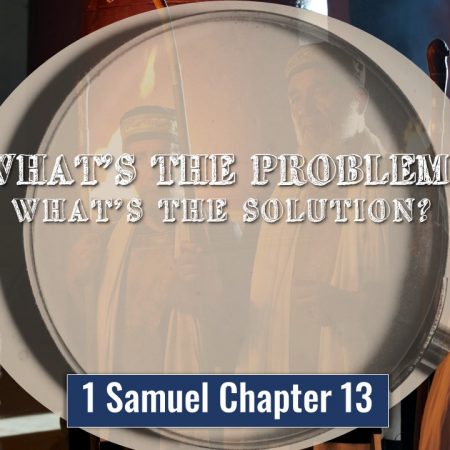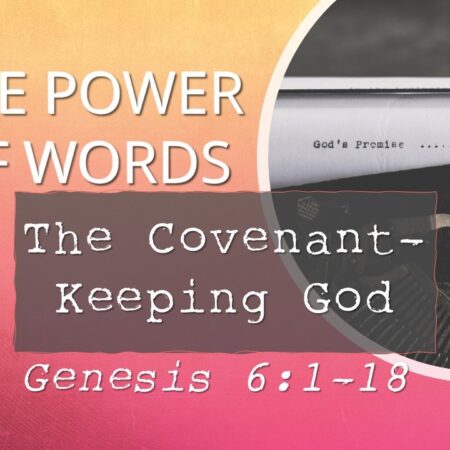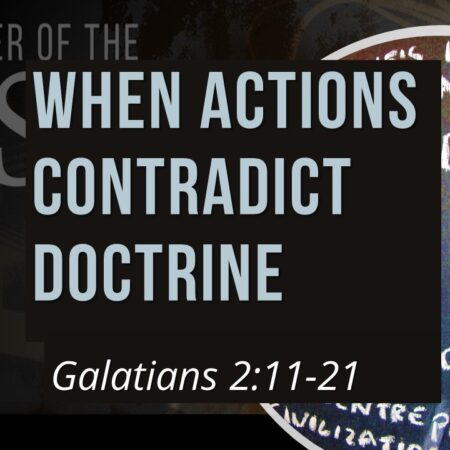1 Samuel 13:1-23 Genesis 14:18-24 Psalm 110:4 Hebrews 7:11-22 Hebrews 11:6 Ephesians 6:10-13
"Trust" Tagged Sermons
A few important questions:
• Who initiated the Covenant Idea? (6:18)
• Why did God pick Noah as a covenant partner? (6:8-9)
• What did Noah do after the promise of God? (6:22-7:1-5)
• Who made sure Noah was safe? (7:16)
• What was Noah’s response to God? (8:20)
• What was God’s response to Noah? (8:21-22)
• Was Noah fully convinced? (9:8-17)
Chuck Swindoll has this to say about Genesis 11:1-9
“One of the greatest enemies of the Christian life is the religious life. Religion is the broad way that most people take, thinking that somehow, they can do something to please God. Christianity is the narrow way that helps us understand what God has done for us.
Religion is what I do for God. Christianity is what God has already done for me. Religion is an EFFORT. Christianity is a GIFT.
The reason religion is so appealing to us is that we like feeling as if we are giving God a boost. We enjoy talking about all we’re doing for God rather than emphasizing what He has done for us. It makes us feel important. At first, religion might sound like it’s focused on God. But in the end, it’s all about us – our achievements, our glory, and our pride.”
Chuck Swindoll in his commentary writes:
“The Apostle Paul does not do this to simply hang out the church’s dirty laundry or to meet some ideal of “total transparency”. Paul knows like anybody else that not everything should be broadcast to the public. Furthermore, Paul certainly isn’t trying to hang Peter out to dry..…..
So, what motivated Paul to report his conflict with Peter to the troubled churches in Galatia?
The key to answering the first question comes from one small word: BUT.”
Chuck Swindoll refers to verse 12
“For BEFORE certain men came from James, he was eating with the Gentiles, BUT when they came, he drew back and separated himself, FEARING the circumcision party.
We could call it Peer-pressure from his Jewish friends. Fear of rejection by his Jewish friends. You see, in Jerusalem, under James, “which was known as “JAMES THE JUST” because of the unimpeachable devotion he exhibited among the Jewish people.” (John Stott, “The message of Galatians”)
John Stott provides some insight into the assumptions of this question found in Galatians 2:17
“Paul’s critics argued like this: “Your doctrine of justification through faith in Christ only, apart from the works of the law, is a highly dangerous doctrine. It fatally weakens a man’s sense of moral responsibility. If he can be accepted through TRUSTING IN CHRIST, without any necessity to do good works, you are actually encouraging him to break the law, which is the vile heresy of antinomianism”. People still argue like this today: “If God justifies bad people, what is the point of being good? Can’t we do as we like and live as we please?”
As Chuck Swindoll wrote in his commentary:
“But what seems like a sturdy staircase built to lead us to God’s favor actually turns out to be a rotten wooden trap that will crumble beneath us. As Paul explains, only the cross of Christ can give us the assurance we need to step out in faith and live a truly grace-filled life.
Our justification, sanctification, and future glorification are all results of God’s grace alone, effected through faith alone, in the finished work of Christ alone.



